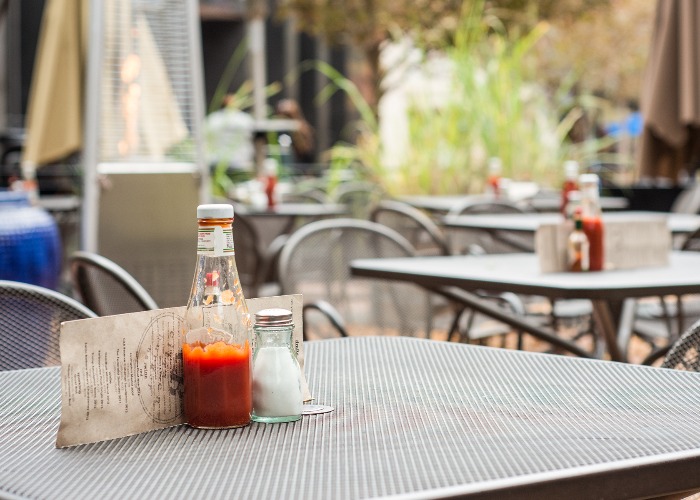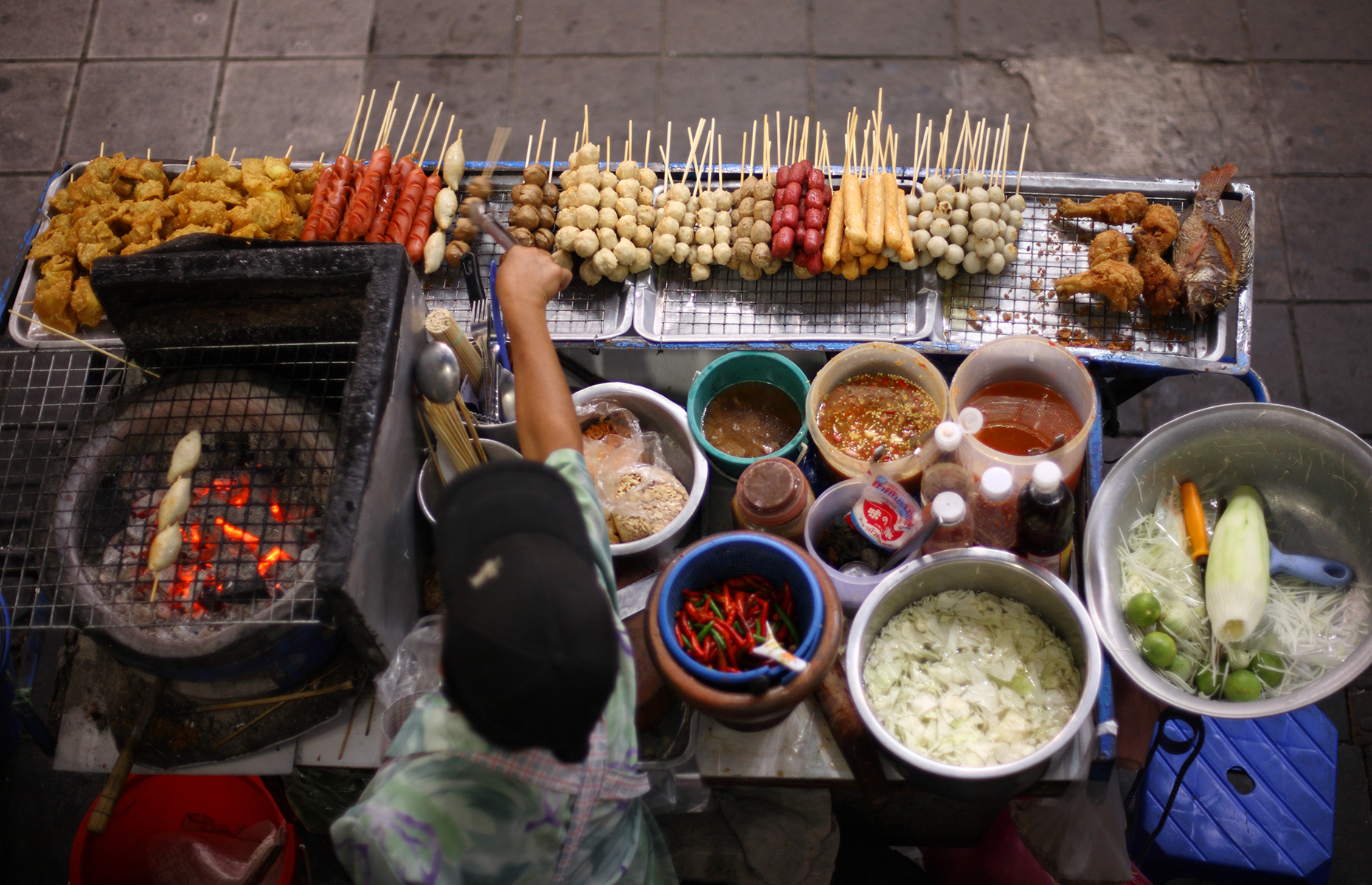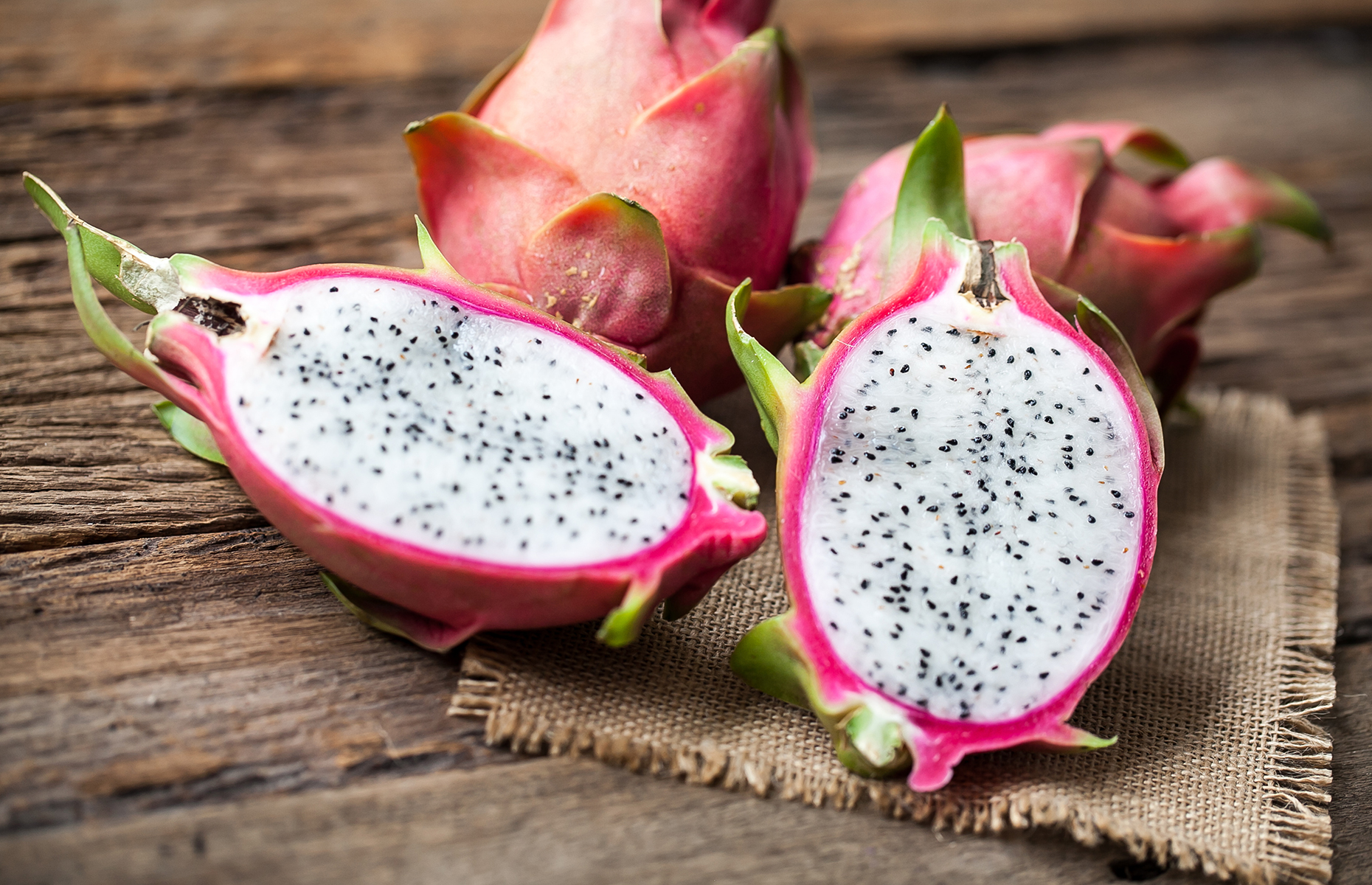Opinion: there’s no shame in seeking familiar food abroad

Writer Anita Isalska says we shouldn't frown upon tucking into familiar dishes while on holiday.
Picture the scene: you’re ambling through a romantic old town in Spain. You can feel cobblestones beneath your sandaled feet as you weave through an open-air market, where stalls overflow with plump tomatoes, oranges and tureens of glistening olives. One stall-holder stirs his pan of paella, another lovingly carves slices of jamón ibérico. But then you see it on a sun-bleached restaurant menu: the words ‘English breakfast’.
You’re in a country that produces some of the world’s finest seafood, cured hams and sherries, not to mention signature sweets like crema Catalana and turrón (nougat). But here you are, craving a familiar spread of bacon, eggs and beans.
Not everyone is able to play dietary roulette when they travel
Whichever country you’re from, seeking out your home cuisine is considered a faux pas when travelling. Ordering an English breakfast on the Costa del Sol is one of the quickest ways for a British tourist to attract sneers from the travel community. Similar eye-rolling greets Australians searching for the coffee holy grail – the flat white – on forays abroad, or Americans choosing a burger from a foreign menu. After all, who would travel far and wide only to order the same food that they do back home?
To begin with, not everyone is able to play dietary roulette when they travel. Travellers with a food allergy can’t afford to fret about whether they’re experiencing enough of a country’s traditional cuisine (we've got tips for you here). Peanuts are common in many classic Thai dishes, but no street food is worth the risk of an allergic reaction. As a traveller who has to eat gluten-free, there are plenty of foods that I’d like to eat abroad – but damaging my body is too high a price for a mouthful of ‘must-try’ ramen noodles.

David Kucera/Shutterstock
But you don’t need to have dietary restrictions to eat whatever you fancy when you travel. It’s a holiday, not boot camp for your digestive system. If you’ve been raised on a diet of plain, lightly seasoned food and are spending a fortnight chowing down on chilli-laced cuisine (or vice versa) who can blame you for craving the occasional flavour of home? It’s not a failure to embrace local culture, it’s self-care… and if you can’t do that on holiday, then you’ve crossed the threshold from experiential travel into masochism.
Don’t get me wrong, sampling new food can be one of the greatest pleasures of travelling. My mouth still waters when I remember nibbling various Comté cheeses in France’s Jura Mountains. If I close my eyes, I can still smell the smoky street food in Delhi. And I’ll never forget my first mouthful of durian, the southeast Asian ‘king of fruits’, with its custardy texture and oniony taste. But while new flavours bring enrichment and joy, it’s unrealistic to expect every traveller to leap directly into full-blown cultural immersion, fried chicken feet and all.
When familiar cuisines are readily available, there should be absolutely no taboo in tucking in
Even travellers passionate about taste-testing new cuisines get fatigued, fall prey to homesickness and, from time to time, long for a familiar meal. Rest assured, seasoned travellers do it too. If you’ve ever noticed a New Zealand-themed coffee house listed in your guidebook about France, you can be sure it was sought out by a homesick travel writer, pining for the flavours of their home country.
Let’s be clear: I’m not suggesting that you plonk yourself down in a Greek village taverna and demand that the 80-year-old chef whip up a plate of fish, chips and mushy peas. This isn’t about travelling far and wide, insisting that every chef caters to your whim. But when familiar cuisines are readily available, there should be absolutely no taboo in tucking in.
Recently I was lucky enough to spend a few weeks working in Malaysia, where every day felt like a banquet. I breakfasted on nasi lemak, coconut rice with side-serves of boiled egg and dried anchovies, garnished with spicy sambal. I guzzled my way through banana-leaf lunch spreads, loaded with daal and rice. I ate so many magenta-fleshed dragon fruit that there were violet fingerprints on my notebooks; their purple juice stained everything from my rucksack to… well, let’s just say that bathroom visits were sometimes startling.

Todja/Shutterstock
But towards the end of the trip, I was exhausted from a heavy workload, humid weather and a short bout of illness. I dragged my tired self into a Kuala Lumpur branch of Nando’s and ordered chicken and chips. I regretted nothing: the familiar flavours lit up areas of my brain that had dimmed over the preceding weeks. In the midst of the Malaysian capital, an unremarkable meal at a chain restaurant brought to mind hurried fast food outings with friends back in my home city of London. Memories, as much as flavours, are why they call it ‘comfort food’.
Our home cuisines can be delightfully reinterpreted abroad
There’s another pleasure when you order your home cuisine abroad, and it’s the lost-in-translation recipes. I once enjoyed a memorable ‘English breakfast’ in Lithuania, in which the chef had taken such liberties with the concept that the plate was heaped with salmon and crème fraîche. It didn’t taste remotely familiar, and yet it gave me a glimpse into how my home cuisine can be delightfully reinterpreted abroad.
"But what about authenticity?", you cry. Is it a failing to follow one’s taste buds instead of submerging yourself in local liqueurs, traditional dishes and cornerstones of a country’s cuisine? Not necessarily, when you consider what ‘dining like a local’ means in reality. The phrase is bandied around in the travel community as though it means ‘eating only local dishes’, but in towns above a certain size, picking from a global smorgasbord is a part of life. After all, northwestern England is as much about Indian cuisine as a Lancashire hot pot. All the more reason to gobble down both regional and imported cuisines when you travel.
So devour without shame, fellow travellers. In food and travel, variety is the spice of life – but you’re also perfectly entitled to turn down the heat.
Read more travel opinion pieces
Why tallying up the countries you've visited misses the point entirely
Comments
Be the first to comment
Do you want to comment on this article? You need to be signed in for this feature